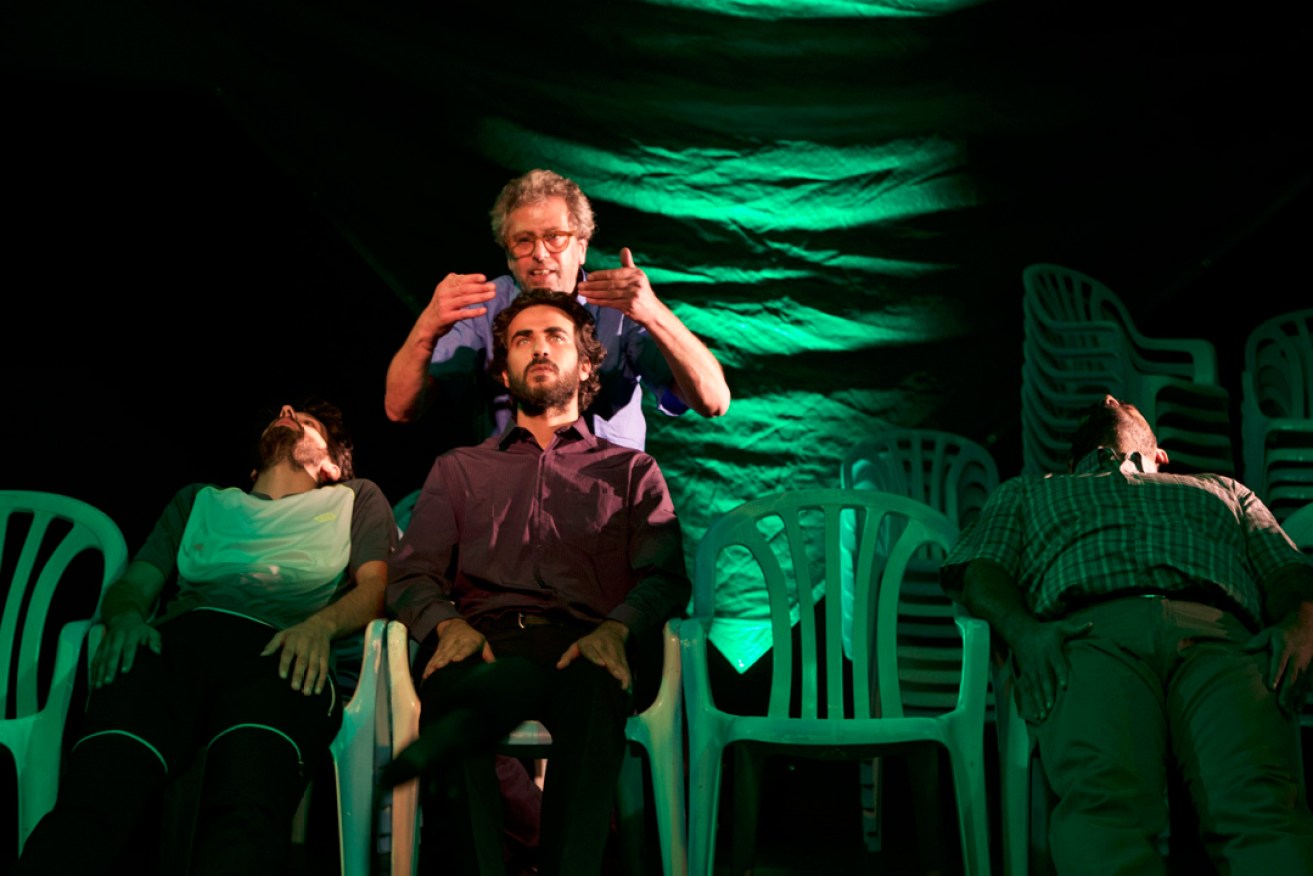Festival review: Azza
Palestine’s ShiberHur Theatre Company makes its Australian debut with this poetic and intense theatrical experience that uses storytelling, mime and a cappella to shine a light on traditional mourning rituals.

There is a waiting-room feel to the set of Azza. Photo: Khawla Ibraheem
In Palestine an old man dies and six men, including his two sons, gather to conduct the three-day azza: rituals, mourning and celebration. In the course of the azza, stories are told about village life, about death and near-death, about the deceased and about each other.
Theatre in the conflict zone of Palestine is incredibly challenged. In the absence of a state, there is no theatre funding, and the small population from which audiences are drawn is spread by physical and political barriers.
Original pieces such as ShiberHur Theatre Company’s Azza are, by necessity, made to be transportable, low-budget, raw.
The result here is a highly innovative, poetic and intense, surprisingly funny theatrical experience.
Writer/director Amir Nizar Zuabi’s use of minimal lighting – including spotlights trained on the stage from open wings, topped with an emerald wash – gives a suggestion of unworldliness to the set, as if the actors and indeed the audience are caught between this place and another.
The six actors share 11 plastic seats and move between them frequently. Stacks of seats at the rear enhance the trenchant waiting-room feel.
Indeed, one actor frequently plays the part of some inner Beelzebub while the others are telling their tales: “Are you ready to come to the Underworld” is his mantra. Is it their own mortal subconscious that is creeping through them and inducing them to reveal their thoughts and stories?
But the tales told are hardly gloomy. The death theme is treated with much humour: with the story of a flying donkey; the youth who jumped into the water tower for love and survived; the big-noter who returned to the village in a red Cadillac then lost all his money; and the deceased himself buying an entire truckload of watermelons and giving half a melon to each villager. The dough is frequently leavened with laugh-out-loud humour.
The actors tell their stories through mime and movement, in a naturalistic and stylised acting fusion. They move about the stage; they clash and reconcile.
The stories are shared memories. Emotion is conveyed through the strength of the voices, the hypnotic chanting of a cappella singing/chanting and through the repetition of gestures. All six cast members make important and varied contributions to this rich work.
As a child, Amir Nizar Zuabi had been confused and fascinated by the rituals of azza. He was already planning a piece centred around this important ritual when his own father died, so the grief process he experienced came to be funnelled straight into this play. His work is a great achievement.
Azza is playing at the Space Theatre, Adelaide Festival Centre, until March 18. Read more InDaily Adelaide Festival stories and reviews here.




